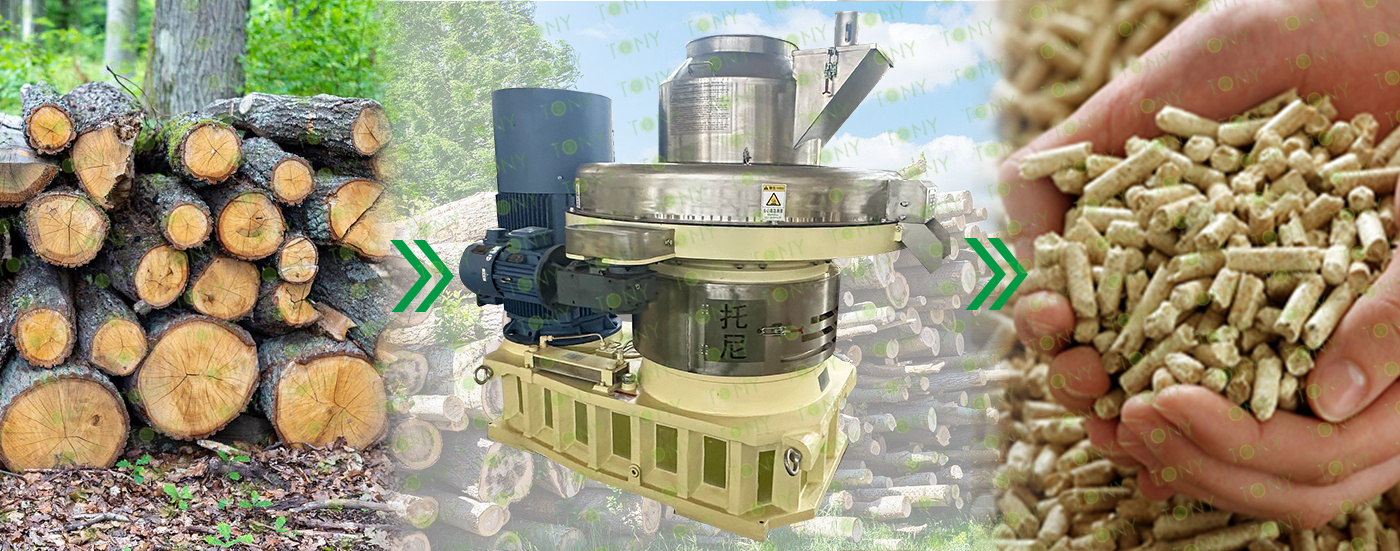TONY analyzes the logical chain of this inevitability from the following levels:
1. The "first need" attribute of biomass fuels forces the implementation of pellet machine technology
The core advantages of biomass fuels (such as resource recycling, carbon neutrality, alternative fossil energy, etc.) do not exist naturally, but need to be achieved through granular processing - this process must rely on biomass pellet machine to form a conductive chain of "advantages - demands - equipment":
The conversion from "waste" to "energy" depends on the pellet machine: If loose agricultural and forestry waste (straw, wood chips, etc.) is not compressed and molded, its low density, high transportation costs, low combustion efficiency and other problems cannot be solved, and the "resource advantage" cannot be discussed. The pellet machine increases the density of raw materials by 8-10 times through mechanical compression (at room temperature or heating conditions), directly giving it the energy attribute of "transportable, storage, and efficient combustion".
The production of standardized fuel depends on pellet machine: If biomass fuel wants to enter standardized scenarios such as industrial boilers and civil heating, the stability of shape, heat value and moisture must be ensured. By accurately controlling the ratio of raw materials, forming pressure and drying parameters, the pellet machine can produce uniform particles with a diameter of 6-12mm and a length of 20-50mm, meeting the "standardized urgent needs" for large-scale applications.

2. The dual driving force of policy and market provides "acceleration" for the development of pellet machine
Policy level: Hard requirements for environmental protection and energy transformation
Driven by the global "dual carbon" targets (carbon peak, carbon neutrality), countries have increasingly strict restrictions on fossil energy, and biomass fuels are included in key support areas as "carbon neutral" energy:
The policy encouragement of biomass fuels is essentially an indirect promotion of its production equipment (pellet machine).
Market level: Increased feasibility of costs and benefits
With the maturity of pellet machine technology (such as the energy consumption of ring die pellet machine and flat die pellet machine has decreased by more than 30%), the production cost of biomass pellet fuel has shown a downward trend, and it is more economical after environmental protection costs (such as coal-fired desulfurization and denitrification costs) are included.
The explosion of market demand (industrial boiler transformation, rural clean heating, biomass power generation, etc.) directly stimulates the expansion of the pellet machine market - According to industry data, biomass pellet machine still grows at an average annual rate of 15%.
The multiple advantages of biomass fuels have, such as resources, environmental protection, and energy attributes, strongly echo the society's urgent demand for clean energy and circular economy. As the core equipment for converting agricultural and forestry waste into standardized biomass pelletized fuels, the inevitability of its development is a direct reflection of the matching relationship between demand and supply.





















